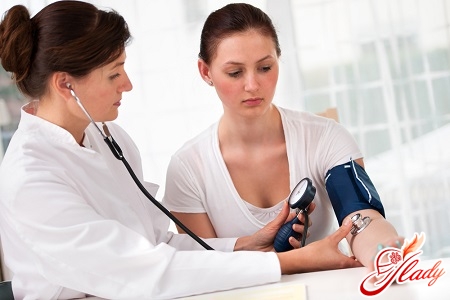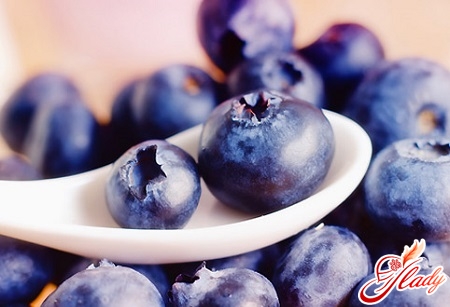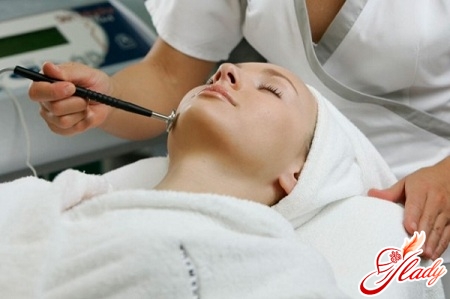
Lower (diastolic) blood pressure -this pressure exerted by blood on the walls of the vessels during pauses between contractions of the heart muscle. What causes high blood pressure?
Causes
- Obesity. When a person's weight is more than normal, excess fats (in the form of cholesterol) are deposited in the body along the walls of the arteries, narrowing them. In this regard, the heart should work harder, which leads to high blood pressure. Long-term treatment is required to clean the vessels.
- Incorrect food. The content of fatty and salty foods in the diet is one of the main causes of increased lower blood pressure. Salty foods increase the level of sodium in the blood, leading to hypertension. Diet with a high content of saturated and trans fats can lead to damage to blood vessels. The best treatment will be an appeal to a nutritionist.
- Smoking and alcoholism. Elevated blood pressure is one of the harmful effects of smoking. Nicotine reduces the level of oxygen entering the heart, increases the heart rate and narrows blood vessels. Excessive alcohol consumption also affects blood pressure. Alcoholic beverages are very high in calories, which leads to weight gain and indirectly affects blood pressure. Drugs and excess caffeine increase the risk of hypertension. For treatment of any dependencies, the main thing is to motivate a person correctly - to you to a psychologist.
- Passive lifestyle. The lack of movement affects the blood pressure in different ways. a person who leads a sedentary lifestyle for a long time, suffers from weight gain and cholesterol levels. A sedentary lifestyle is one of the risk factors for a large number of diseases. How to reduce elevated low blood pressure?
In many cases, except for frequent headaches andfatigue, no other symptoms are observed. Therefore, it is recommended to regularly measure blood pressure. There are several natural methods that will help in the treatment of high blood pressure. 
How is it treated?
- Increase the number of useful products. As already noted, improper nutrition directly or indirectly leads to hypertension. It is necessary to make changes in your diet and there are only useful products. you should limit the intake of foods containing large amounts of sodium (salt, caviar, bird meat, all pickled and canned foods), fats (exclude all fried and butter) and cholesterol (margarine, sausages, egg yolk). Include fresh fruits, vegetables, nuts and meat in your diet. Healthy diet will help in reducing weight, speed up treatment and reduce the risk of high blood pressure.
- Exercise stress. Constant employment for 20-30 minutes will help you go a long way to prevent heart disease and treat related diseases. You can buy a subscription to the gym or play sports at home using the correct exercises recommended by your doctor. You can use alternative forms of exercises, such as swimming, dancing, aerobics, running and so on.
- Lose weight. If you have a high body mass index (BMI) and overweight, you need to monitor them to prevent the risk of disease. Proper nutrition and regular exercise are the best natural methods of weight loss. Do not blindly follow a diet seen in one of the women's magazines. If a diet is necessary, let her give you a nutritionist.
- Quit smoking. If you want to cure hypertension, you will have to stop smoking. Both active and passive methods of smoking are equally harmful. you should reduce and consumption of alcohol to prevent the occurrence of high blood pressure and further complications associated with hypertension.
High blood pressure (systolichypertension) are observed more often than an increase in the lower (diastolic hypertension), but should not be ignored, as it can lead to diastolic heart failure. If you want to understand your blood pressure readings and their values, the values of blood pressure values are given below. Arterial pressure (degree) Upper value Lower value Highly underestimated - hypotension <100 <60 Ideal from 100 to 119 from 60 to 79 Normally from 120 to 129 from 80 to 84 Elevated from 130 to 139 from 85 to 89 Minor hypertension from 140 to 159 from 90 to 99 Moderate hypertension from 160 to 179 from 100 to 109 Severe hypertension> 180> 110 Systolic (arterial) pressure is the force with which the blood presses on the vessels when the heart muscle contracts. Diastolic blood pressure arises in a pause between contractions of relaxed muscles of the heart. When systolic arterial high (up to 145 mm Hg or higher), a person suffers from hypertension. in this case it is necessary to see a doctor as soon as possible.









